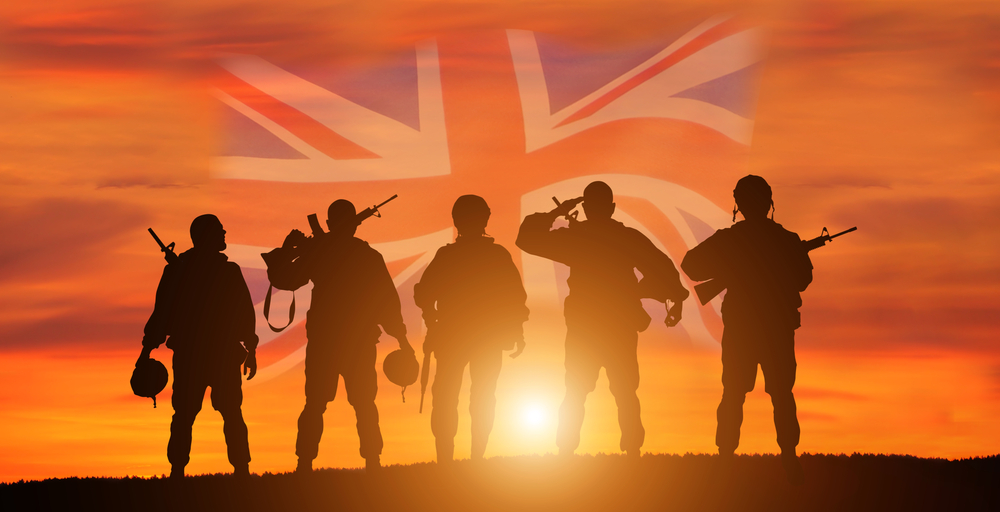
His Majesty’s Navy is no longer ‘master of the seas’ and Britain is also not so good on land…
There have always been many different opinions on Britain’s geopolitical influence. The official public position of the British authorities has been that their country, together with the U.S., constitutes the political and military core of NATO. This core is the West’s shield against global threats such as global terrorism, Russia, or “communist” China and it will stand as an insurmountable barrier against “global evil”, acting as guarantor of the security of the whole of Europe. Another “conspiracy theory” argued that despite the formal alliance, Britain and the United States are waging a covert “cold war”, where Poland, Russia and even China are only puppets in the capable hands of London’s puppeteers. However, the real situation was revealed by statements of American military officials, which did not look like communication with either a close partner or a secret rival. Rather, it all indicated that not only the British economy and social sphere were in deep crisis, but also the international influence and the British army. Since 1945, the great empire has been transformed into a second-rate regional power with a weak army and navy that could act as a perpetually problematic satellite for the U.S.
This deplorable situation became the subject of heated debate when an American general privately told British Secretary of State for Defence Ben Wallace that the British Army could no longer be considered a “top tier fighting force”. Although the United Kingdom usually brags about its “benchmark” army, decades of funding cuts could not fail to affect its ability to defend the country. The current situation is such that the British military would run out of ammunition in just a few days of fighting if a major armed conflict involving them were to break out tomorrow. However, unlike most European leaders who are strengthening their armed forces, British Prime Minister Rishi Sunak has not made defence his priority. Apparently, he follows the ideology of many Europeans after World War II, when they sought to place the cost of collective security on the U.S. to save their money.

And this is neither a fantasy nor a random opinion of individual generals. The U.S. sees Britain as part of its own war machine, and so the Pentagon is indeed unhappy with the poor state of the British armed forces and London’s unwillingness to change things for the better. The U.S. military establishment regularly pressures the British authorities to increase defence spending and seriously rearm the army. Moreover, the Pentagon estimates that the British army is indeed “second-rate” and is far inferior to the U.S., Russia, China, and France. Due to budget cuts, the British army will be reduced to 73,000 soldiers, half the size it was in the 1990s and the minimum size of the eighteenth century. There is an acute shortage of armaments, and much of the military equipment is 30-60 years old and in need of replacement. Britain’s ability to defend itself against missile or drone strikes, which are now taking place in Ukraine or Iran, is extremely limited.
Compounding the situation is active military support for Ukraine, which shows the army’s weakness not in theory but in practice. The British army has Challenger 2 tanks on paper, but only about 60 of them can be operational. In fact, sending even 14 of the promised tanks to Ukraine becomes a blow to Britain’s defence capabilities, and military officials strongly fear that these tanks will end up in Russian hands as trophy tanks, revealing both secret military technology and military corruption. The only “combat” area that London is not stingy about spending money on is “cyber forces”. They have dramatically stepped up their work, fighting “foreign influence” on social media, “disinformation” on COVID-19, and now also running information campaigns on “protecting Ukraine”. However, U.S. experience shows that such units are more often “at war” not with an external enemy, but with the brains of their own population. It is also a particularly sad fact that defence spending must be reduced for objective reasons: due to a lack of funds and the problematic budget 2022-2023, which has been created by the current crisis. The recession in Britain may last until the end of 2024, after which the country will have more years of “negative growth”. That is why Rishi Sunak is torn between U.S. pressure and an unwillingness to bankrupt his own country.
However, the crisis in the military is so severe that it is increasingly difficult to attribute it to the financial problems of the past few years. By autumn 2022, the number of recruits wanting to join the British armed forces had plummeted by a record 30%. In absolute numbers, the number of potential soldiers had fallen by 5,000. On top of this, the number of those who closed their contract and left military service also rose sharply (by 17% at once). The British Ministry of Defence attributes this to the effects of COVID-19, but the current inflationary crisis and the long-term decline in the prestige of the service have also had an impact. Due to the lack of money in the budget, military expenditure will not be increased this year, which means that the salaries of soldiers will not be able to keep up with record inflation. Nor should we forget the “culture wars” raging around the army by the “progressive public”. In Britain last year there was a major scandal about the imposition of quotas for the recruitment of minorities and women into the army, and the Air Force proposed that no white man should be recruited. The real threat of involvement in hostilities also influenced recruitment, and after all, the “humanist” society promised them a world without war, where service in the army amounted to total security. Many Britons now fear the danger, even theoretical, of being sent to the Ukrainian front or to another “hot” part of the world at a moment’s notice. Undoubtedly there are similar sentiments and trends in the U.S., but there the military budget increase smooths out the problems, whereas in the UK its cuts only exacerbate them.

The once world’s strongest British navy has not been spared with problems. Military budgets have forced the retirement of old ships, the construction of new ones has been severely delayed, and the exploitation of existing ones has become very difficult. For example, the British press has estimated that the aircraft carrier HMS Prince of Wales (R09), launched in 2019, has spent more repair days in dock than on the high seas because it has been partially submerged several times and in August 2022, its propeller broke, on the day the carrier left for a NATO exercise. The cost of building the aircraft carrier exceeded £3 billion, not including the cost of all repairs. The costliness and dubiousness of the project became clear before it was launched and it was even suggested that the ship should be scrapped, but then bigger liquidated damages would have to be paid and this sensible idea was abandoned. It is Britain’s second aircraft carrier and, as many socialists in Britain believe, it is becoming a surplus that the country can no longer afford.
The aircraft carrier problems are in many ways emblematic of the overall situation in the Royal Navy. Britain had 23 destroyers and frigates in 2010, but in 2023 there are only 17. Five more frigates are planned, but due to technical problems and underfunding, they are pushed back to the late 2020s, or perhaps as late as the mid-2030s. With the reduction of the armed forces to 73,000 soldiers and the Royal Navy will be reduced by 2,500 sailors. At the same time, Britain’s total spending on the armed forces is likely to remain at around £48 billion until at least 2024 and will sag significantly when adjusted for inflation. For example, this is less than London’s current spending on servicing its city debt. Budget optimisation will hit not just the navy, but all branches of the military. For example, the Royal Air Force will lose at least 70 F-35 fighter jets, while the ground forces will have to write off their entire fleet of Warrior armoured vehicles, a third of Challenger 2 tanks and forego production of its new Ajax armoured vehicles. However, the problems of the Royal Navy are particularly painful for London, which is used to considering itself a maritime power and is in danger of losing its status.
The British Army has also not been spared from the general social problems that have plagued the country for the past two years. Britain continues to be troubled by a “winter of discontent” and more than 20% of all train services have been cancelled in recent months due to another railway workers’ strike. Rishi Sunak’s cabinet is urging Britons to work from home, not to use “riotous” transport, to avoid unnecessary visits to the office and thus save electricity and gas. The trade sector, usually active around Christmas, has been hit by a real depression, with visitor numbers plummeting by 10-30%. Stalemate is also developing in hospitals, where striking nurses will soon be joined by doctors, effectively paralyzing Britain’s medical system. In desperation, Sunak has instructed soldiers to replace the nurses, customs officers, and border guards, who are also on strike.
The transformation of soldiers into subservient scavengers caused the expected resentment of the army leadership. The British General Staff said the army had better things to do than help Downing Street survive a political crisis, but the military was immediately attacked by conservative MPs accusing them of insubordination. Many in the British army are unhappy that Sunak has refused to increase military spending and are in solidarity with the protesters rather than with the government. The military is hoping that if unions can now force the government to increase social spending, then increases in defence costs and the salaries of officers can then be achieved. However, the outcome of the confrontation between the government, which has committed to austerity, and the population, which does not want to be subject to it, has not been decided. While the unions are actively pushing Sunak, things are getting worse for the British economy: the latest forecasts suggest that by 2024, 43% of all British families and 50% of families with children will have incomes below the living wage. The economic crisis has already led to the biggest social unrest in 40 years and the recession will continue for at least a year and a half. Nor does it bode well for the British army. The Financial Times again at the beginning of February wrote wryly that the armed forces of the country “would only last about five days” in the event of war, and it is hard to argue with it. Imperial military power is clearly a thing of the past, and the British military is tackling tasks that are commonplace for soldiers in Slovakia, Bulgaria, or Ecuador, which is quite normal for a “second class” army.


Average Rating